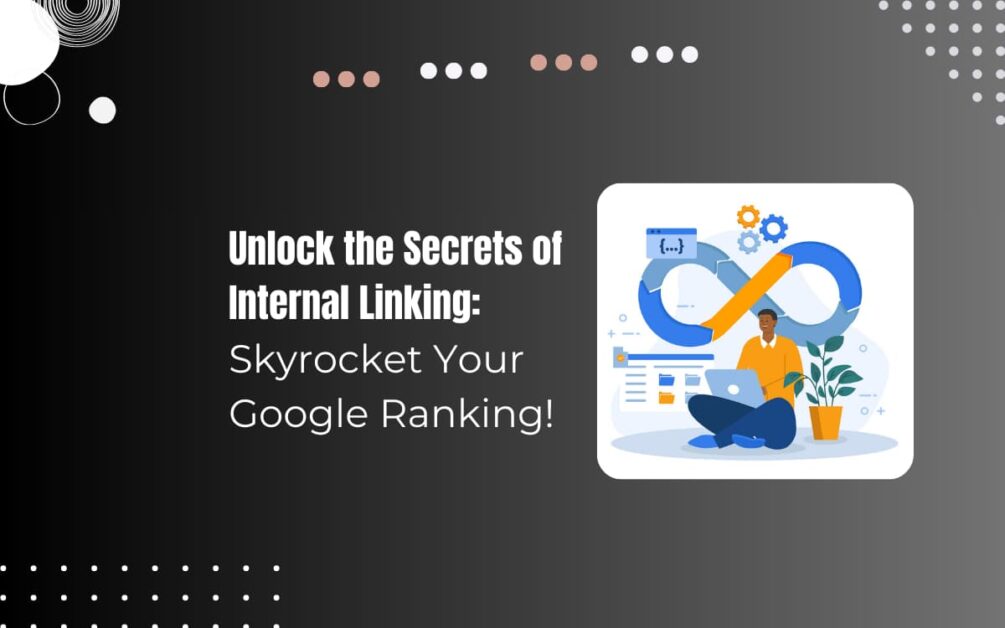Reading Time: 7 mins 28 sec
In this article, we will discuss, how to improve lcp score.
Website performance is essential for online success in the present digital age.
Slow-loading websites not only frustrate users but also affect search engine rankings.
One important metric that impacts user experience and SEO is the Largest Contentful Paint (LCP) score.
LCP measures how long it takes for a web page’s largest elements to become visible to the user.
We will explore effective strategies and techniques to improve your LCP score and boost your website’s performance.
So let’s get started
Read This: How To Write A Meta Description For A Website
What is LCP Score?
A key metric called Largest Contentful Paint (LCP) measures how long it takes for a web page’s largest content piece to load and become visible to the user.
It provides valuable insights into the loading speed of a web page.
Google considers an LCP score of 2.5 seconds or less as good, while anything above that indicates room for improvement.
By optimizing your LCP score, you enhance user experience, reduce bounce rates, and improve search engine rankings.
The Importance of LCP for User Experience
For a website to provide a smooth user experience, it must load fast.
Users have little patience for slow-loading pages and are more likely to abandon them in favor of faster alternatives.
LCP directly impacts the perceived speed of your website, as it measures the time it takes for the main content to appear.
By improving your LCP score, you ensure that users can access your content quickly, resulting in higher engagement, longer visit durations, and increased conversions.
Factors Affecting LCP Score
Several factors contribute to the LCP score of a web page.
Understanding these factors is essential to identify areas for improvement.
Here are some key elements that affect LCP:
Large Images: High-resolution images with large file sizes can significantly impact the LCP score. Optimizing and compressing images can greatly reduce their loading time.
Render-Blocking Resources: CSS and JavaScript files that block the rendering of web pages can delay the LCP. Minifying, deferring, or asynchronously loading these resources can help improve the score.
Slow Server Response: The time it takes for the server to respond to a user’s request affects the LCP score. A slow server response time can be caused by various factors, such as high website traffic or inadequate hosting resources.
Unoptimized CSS and JavaScript: Bloated CSS and JavaScript files can increase the loading time of a web page. Minifying, combining, and reducing the size of these files can enhance LCP performance.
Poor Mobile Optimization: With the increasing use of mobile devices, optimizing your website for mobile is crucial. Mobile-specific issues, such as slow network connections or unresponsive design, can negatively impact LCP scores.
Read This: How To Use Internal Links For Better Ranking On Google
How To Improve LCP Score: Best Practices
This question arises in every mind how to improve largest contentful paint?
Now that we understand the importance of LCP and the factors that affect it, let’s explore some best practices to improve your website’s LCP score:
Optimize Image Sizes
Large images can significantly slow down your website. Use image optimization techniques like compression and resizing to reduce their file size without compromising quality. Use modern image formats like WebP for faster loading and better compression, such as.
Minify CSS and JavaScript
Minification is the process of removing unnecessary characters and whitespace from CSS and JavaScript files. Minifying your code reduces file sizes, leading to faster loading times. Use online minification tools or plugins to simplify this process.
Leverage Browser Caching
Enabling browser caching allows your website’s assets to be stored locally on a user’s device. By specifying the caching duration for different file types, you reduce the number of requests to the server, resulting in improved LCP scores for returning visitors.
Read This: Which Is Best CMS For Website
Prioritize Critical Content
Identify the critical content that needs to be loaded first and prioritize its delivery. By using techniques like preloading and lazy loading, you ensure that users see the essential elements of your page as quickly as possible, improving their overall experience.
Reduce Server Response Time
A slow server response time can significantly impact LCP scores. Optimize your server infrastructure, database queries, and caching mechanisms to ensure fast and efficient responses to user requests.
Use a Content Delivery Network (CDN)
A CDN distributes your website’s content across multiple servers worldwide, reducing the physical distance between users and your server. This leads to faster content delivery and improved LCP scores, especially for users in different geographical locations.
Eliminate Render-Blocking Resources
Render-blocking resources like CSS and JavaScript can delay the rendering of your web page. Minimize their impact by deferring their loading or asynchronously loading them after the main content has been rendered.
Implement Lazy Loading
Lazy loading is a technique that defers the loading of non-critical elements, such as images and videos, until they are about to enter the user’s viewport. By implementing lazy loading, you reduce the initial page load time and improve the LCP score.
Upgrade Your Web Hosting Plan
If you are experiencing consistently slow server response times, consider upgrading your web hosting plan. Choose a hosting provider that offers optimized server configurations, faster hardware, and scalable resources to accommodate your website’s needs.
Use a Performance Optimization Plugin
Content management systems (CMS) like WordPress offer various performance optimization plugins. Install a reputable plugin that can automatically optimize your website’s performance by implementing caching, minification, lazy loading, and other performance-enhancing techniques.
Minimize Third-Party Scripts
Third-party scripts, such as those used for analytics or advertising, can significantly impact your website’s loading speed. Each script should be evaluated for need; any that are not required should be removed. Alternatively, load them asynchronously to prevent them from blocking the rendering process.
Optimize Web Fonts
Web fonts can add visual appeal to your website but can also increase loading times. Choose web fonts that are optimized for performance or consider using system fonts to improve LCP scores.
Read This: Local SEO For Real Estate Businesses
Reduce Redirects
Redirects increase the number of HTTP requests made and the amount of time it takes a website to load. Minimize the use of redirects and ensure that they are implemented efficiently to avoid unnecessary delays.
Enable Compression
Enabling compression techniques like GZIP compression can significantly reduce the size of your lcp website’s files during transmission. Compressed files are quicker to transfer, leading to faster loading times and improved LCP scores.
Eliminate Unused CSS
Unused CSS adds unnecessary bloat to your web page. Identify and remove any unused CSS code to reduce the file size and optimize the rendering process.
Defer JavaScript Execution
Delaying the execution of non-critical JavaScript code until after the initial page load can improve LCP scores. Use the “defer” attribute or load JavaScript asynchronously to prevent it from blocking the rendering process.
Optimize Videos
Videos can be a significant contributor to slow-loading pages. Optimize videos by compressing them, using modern video formats, and implementing lazy loading to defer their loading until necessary.
Implement Resource Hinting
Resource hinting allows browsers to anticipate and fetch resources that will be needed in the future. Use techniques like preloading and preconnecting to instruct browsers to fetch critical resources, reducing the overall load time and improving LCP scores.
Split Long Pages into Smaller Parts
Long pages with extensive content can lead to slower loading times. Split large pages into smaller, more focused sections to improve loading speed and ensure a better user experience.
Reduce the Number of HTTP Requests
Each HTTP request made by a web page introduces additional latency. Minimize the number of requests by combining and optimizing files, reducing the need for multiple round trips to the server.
Avoid Excessive DOM Size
A large Document Object Model (DOM) can negatively impact performance. Simplify your HTML structure, remove unnecessary elements, and optimize CSS selectors to reduce the overall DOM size and improve LCP scores.
Use Efficient Web Design Frameworks
Choose lightweight and efficient web design frameworks that prioritize performance. Frameworks like Bootstrap and Foundation offer optimized code and built-in performance features to help improve LCP scores.
Optimize for Mobile Devices
Mobile optimization is critical for delivering fast-loading pages. Use responsive design techniques, optimize images for mobile, and ensure that your website is mobile-friendly to enhance LCP performance on mobile devices.
Regularly Monitor and Test Performance
Website performance can fluctuate over time due to various factors. Regularly monitor your website’s performance using tools like Google PageSpeed Insights, Lighthouse, or GTmetrix. lcp test online different optimizations and track their impact on LCP scores to identify areas for improvement.
Improve Server Response Time
A fast server response time is crucial for optimal LCP scores. Optimize your server’s configuration, database queries, and caching mechanisms to ensure efficient processing of user requests.
Read This: Maximizing Online Lead Generation In Real Estate
Conclusion
In this above article, we will discuss how to improve lcp score.
Improving your website’s LCP score is essential for delivering a fast and seamless user experience.
By implementing the strategies and best practices discussed in this article, you can optimize your LCP score, enhance website performance, and boost your search engine rankings.
Remember to regularly monitor and test your website’s performance to identify areas for improvement.
With a well-optimized LCP score, you can provide users with a delightful browsing experience and achieve online success.
If you like this article please share and comment.
Read Also
- Top 65 Technical SEO Interview Questions And Answers
- Does Bold Text Help SEO
- How To Create The Perfect H1 Tag For SEO
- Google Announces Five Changes Coming To Mobile Search
- Benefits Of Using Semrush
FAQ
How can I improve my LCP site?
Optimizing LCP can be broken down into four simple steps:
Make sure that the LCP resource starts to load as soon as possible.
As soon as the resource loading for the LCP element is complete, make sure it can render.
As much as possible can be done to speed up the LCP resource’s loading time while maintaining its quality.
How do you resolve LCP problems?
Removing render-blocking resources may significantly cut down on LCP problems. Due to the fact that they were created expressly to load files independently, minify, defer, and inline CSS and JavaScript, plugins like Async JavaScript or Autoptimize may usually resolve issues.
What is a good LCP score?
A web page should be able to render its major elements in less than 2.5 seconds as a general rule. If a web page has an LCP score of 1.2 seconds or less, it is sufficient and you don’t need to do anything else. The permissible range is between 1.2 and 2.5 seconds.
How can I improve my CLS and LCP?
To speed up the loading of your website’s essential content, delay any unnecessary JavaScript and CSS.
Make CSS and JS files smaller to cut down on blocking time.
Get clear of any extra CSS or JS.
Reduce file size and loading time by optimizing and compressing text and image files.
What causes high LCP?
The server receives a request from the browser, but it takes too long for it to provide the content that is wanted. It takes some time for things to be rendered on your screen since the content isn’t delivered to the browser quickly enough. The outcome is a poor load time. It has an impact on the LCP score.
Does lazy loading affect LCP?
Your page’s LCP timeliness may suffer if your LCP picture (such as your hero image or main slider) loads slowly. While lazy loading of offscreen photos is encouraged, lazy loading above-the-fold content, such as your LCP image, is not advised if you want to achieve quick LCP timing.
How do I increase LCP on my WordPress site?
There are five ways for improving your WordPress score for Largest Contentful Paint.
Image optimization.
Render-blocking resources should be removed.
Utilize a content delivery network
Delete any plugins that are not being utilized.
Reduce the response time of your server.
Does LCP affect SEO?
In SEO, what is LCP? As a user-centric metric, LCP is significant for the Web Vitals score. LCP calculates how long it takes for people to see the largest content element. It just counts the time it takes for the most crucial portions of the material to load.
How was your overall experience with SEOwithsunny?



